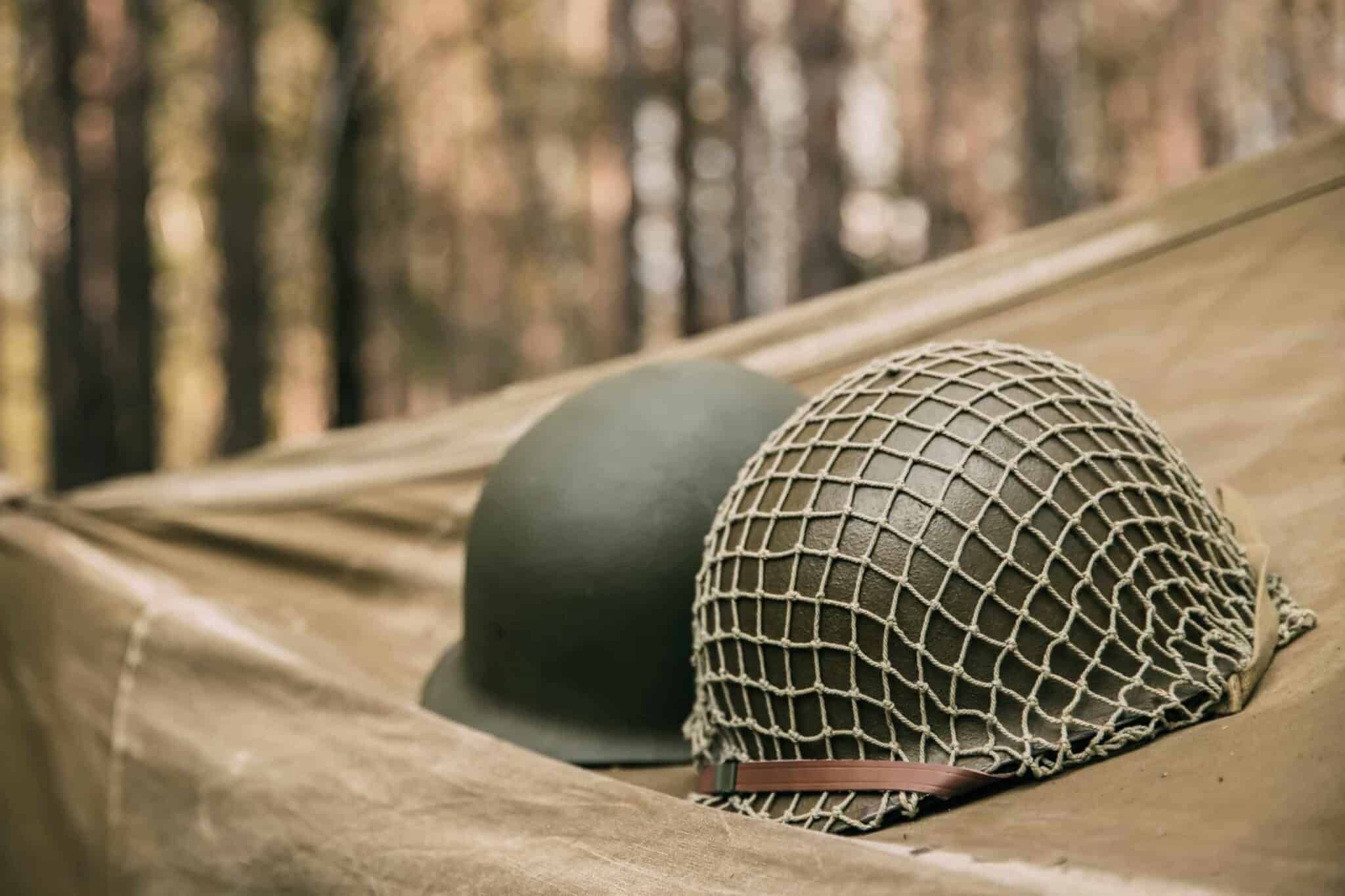
The Urgency of Action: Nagorno-Karabakh and the EU’s Responsibility
Metal Helmet Of United States Army Infantry Soldier At World War II. Helmet On Camping Tent In Forest Camp.The haunting echoes of recent events in Nagorno-Karabakh serve as a stark reminder to us all of the urgency gripping the Armenian people. Lives lost, families torn apart – this is the grim reality faced by those in the midst of this conflict. In these critical times, the European Union finds itself at a crossroads, demanding decisive action grounded in our shared values. We must rise to the occasion, because the atrocities unfolding in Nagorno-Karabakh are a painful testament to the cost of our complacency when it comes to EU foreign policy.
A humanitarian imperative:
The situation is chaotic. Currently over 65,000 displaced persons seeking refuge in Armenia, they look to us for a lifeline. The state minister has been arrested at an illegal checkpoint set up by Azerbaijani soldiers. The president of Nagorno-Karabakh, Samvel Shahramanyan, has been coerced into signing an order to dissolve all state agencies and organizations on the territory.
Innocent civilians are fleeing, and those who don’t risk paying paying the ultimate price. The previously frozen conflict in the Nargono Karakbakh region is no longer “just” a political matter; it has developed into human rights violations and senseless killings. Urgent humanitarian aid must flow unimpeded to ease the suffering of ethnic Armenians displaced from the Nargono Karabakh region. It is in these moments of crisis that our shared commitment to peace and humanity is being put to the test.
The deafening silence from the EU Council:
And yet, amidst this urgency, I must address the glaring issue in front of us – the silence of the EU Council. Weeks ago, when the world needed a statement from the EU Council and a roadmap to address the violations of international law by Azerbaijan, instead it was blocked by Hungary.
My question is as simple as it is fundamental:
How can we, as the EU, claim to work towards human rights, dignity, prosperity when our highest governing body cannot even agree on a simple statement? My political understanding is this: inaction at this critical juncture could breed anti-EU sentiment in Armenia and play into the hands of Putin’s draconian policy towards Armenia and the region at large. That is a risk that we simply cannot afford to take. And even worse, it is a risk that we cannot afford for the ethnic Armenians in Nagorno-Karabakh. They deserve better than this.
Russia’s Double Game:
Recent “so-called peace mediation” between Nagorno-Karabakh and Azerbaijan, spearheaded by Russia, reveals a power dynamic that should deeply concern us. Formally, Russia and Armenia have considered themselves allies for years. However, lately, Russia has been “peace” mediating between Azerbaijan and the Armenians, to the sole benefit of Azerbaijan despite war crimes in the Nargono Karabakh. The grim picture I see is that Azerbaijan’s assertiveness is on the rise with Putin’s satisfaction in tow. This should be a message to Armenia that Russia is not your friend.
A call to action:
Our political stance must be resolute in the face of potential escalation in the region. We, the European Union, must extend an invitation to the Armenian President Vahagn Khachaturyan to Brussels, with the intention of solidifying our commitment to a positive change away dependency on Russia that does not serve the Armenians. Rigorous sanctions against Azerbaijan are not just a choice; they are a necessity. The safety of those who have lived in Nagorno-Karabakh is our priority.
Recently, the European Commission provided 5 million EUR in aid to Nagorno-Karabakh. Commendable as it is, it falls extremely short of what we as the united EU can do in these trying times. We must uphold our values, even when faced with economic interests. Now more than ever, we have to stop signing gas deals with authoritarian regime like Azerbaijan. As we reflect on the recent events, we are reminded that our shared goal is a future of peace and prosperity for Armenia and the South Caucasus region at large.
Territorial disputes are not unique to any specific region in the world. Even in my home country Denmark, which is often described as a very peaceful nation. We too have experienced territorial conflicts in the Danish southern region bordering to Germany, the so-called Schleswig-Holstein. We engaged in multiple armed conflicts with Germany to maintain control, dating back to 1848, a time before any universal code of conduct or international human rights were established or agreed upon.
Nevertheless, this issue was ultimately resolved through a plebiscite in 1920, which provided the people of Southern Denmark and Northern Germany the opportunity to vote on whether they wished to remain part of Germany or re-join Denmark. The majority chose to reunite with Denmark.
I believe that this peaceful resolution held great significance and relevance, as it allowed the people to have a say in their own political and geographical destiny. It demonstrated that peaceful resolutions can be achieved through a commitment self-determination of the people, involving the international community and when emphasized on democracy and non-violence. Implementing a similar approach in Nagorno-Karabakh, with the mediation of the international community could offer a path to a peaceful solution. Nevertheless with each passing day, this path is growing increasingly challenging, and the urgency of this situation demands our immediate attention.
Next week in Strasbourg, I will emphasize our moral obligation and stress the need for EU intervention. Time is of the essence.
Let us, at the European level, rise above political divisions and work together towards a stable, prosperous, and safe Armenia.
The longer we wait, the more difficult it becomes.